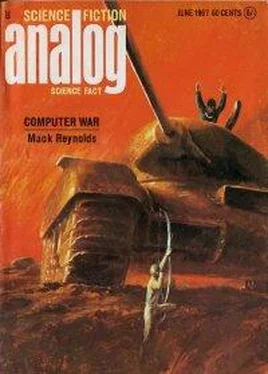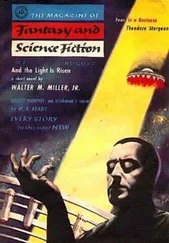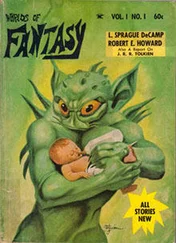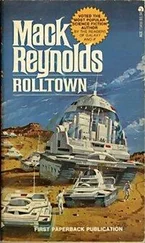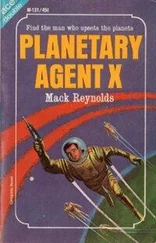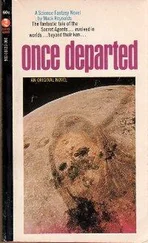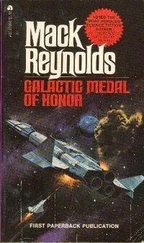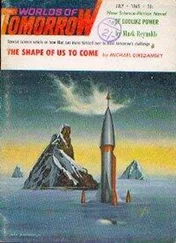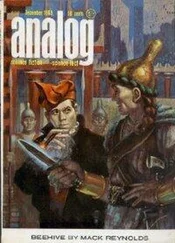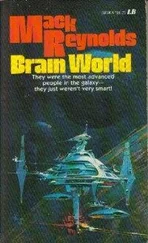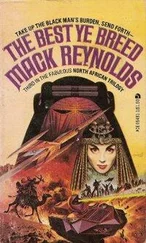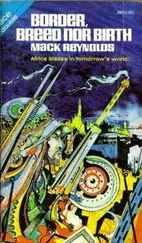Tilly finally stopped. “This is it, isn’t it, Manuel?”
“Should be. Let’s hurry.” The other looked like a kid in no more than his late teens, unless inspection came close enough to take in the wrinkles in his forehead, the depth of intelligence in his eyes. He wore heavy contact lenses. Of them all, he alone seemed nervous, as though the pace of action was unaccustomed.
Tilly whispered urgently, “On your toes, boys. There’ll be action here.”
She banged her slight shoulder against the massive door.
Beyond, two Surety men were hurrying toward them, one with gun in hand, the other in the process of drawing.
An arrow winged its deadliness past Tilly, missing her by less than six inches. It sped halfway through the lead guard’s throat, projecting its bloodiness behind, as the man crumbled forward to his knees, and then, gurgling, flat on his face, his feet drumming agony against the heavy carpeting.
The second guard got one bolt off before being transfixed with three more arrows, then he too went down.
“All right,” Tilly said. “Gonzales, it’s all yours. Fast now. We’ll hold until you’re through. But according to your speed, or lack of it, we’ll get out of here or not.”
Manuel Gonzales unslung a purse-like affair from over his shoulder. He put it down carefully on a heavy table and began hurriedly bringing its contents forth, to lay them in semi-orderly rows on the table. His mouth was dry and he licked his lips often, with little result.
He held an extension cord over his shoulder without looking to see who might take it. “Plug this in,” he said, his voice high. He cleared his throat. His hands were flying.
Tilly was standing in the middle of the large room, her bow in hand, an arrow on the string.
Combs, cool as winter wind, came to the assistance of Manuel Gonzales, who was occasionally fumbling his gadgets.
Combs said, soothingly, “How’s it work, Manuel?”
Gonzales spoke, even as he tinkered. “It discharges a condenser-bank through a small coil, generating a very powerful magnetic pulse; then a charge of high explosive is rigged to implode the resultant magnetic field to produce an empire-size flux density. Just a single two-microsecond pulse—but it makes every computer-magnetic-memory within half a mile ‘forget’ all its information and the data stored in the machine at the time, necessitating complete reprogramming. It also whips most of the magnetic tape around, lousing up records no end.”
Admiration in his voice, Combs said, “You lost me somewhere back there, but it sounds swell. We should’ve tried to get it into the War Ministry.”
Tilly, still standing, arrow still on string, said, “No. Finance is even better. You don’t fight wars with soldiers anymore, not primarily.”
Altshuler came in from the corridor, his face strained. He said, “Zimmerman copped one. That single bolt the guard got off.”
Tilly looked at the two technicians. “Try to hurry it, fellows.” She went out into the hall.
Several of the so-called Alpha Scouts, their bows at the ready, were standing guard. Two of them were bent over Zimmerman, who was propped up in a sitting position against the wall. His face was unnaturally pale and blood had already soaked through the improvised bandages.
“How bad is it, Zim?” Tilly asked.
“It’s pretty bad,” he grated. “I’ll never make it.”
Tilly told those working on him, “When we run for it, you two carry him. The rest of us will cover.”
Zimmerman shook his head. “It’d jeopardize everybody. Besides, if they got me, they’d stick me under Scop and I’d betray half our people in town. I’m expendable, Till. Finish me.”
Her lips thinned back over her artificial buckteeth. She stared down at him.
Finally she said, “Anything you want passed back home?”
He shook his head again. “No. I said my famous last words when I left to come over here. I knew there was fat chance of ever coming back.”
“All right,” she said, so low as hardly to be heard. Her eyes went suddenly to Bernal. “It’s an order, Bernal!”
An arrow smashed the heart of the fallen guerrilla.
Gonzales and Combs came running from the inner room.
“Let’s go!” Combs yelled.
They dashed down the corridors, back the way they had come. Their other groups merged with them as they progressed, coming on the run from the different points to which they had scattered when first entering the building. Three were missing, besides Zimmerman.
They sped out the entry through which they had come a scant ten minutes earlier, and down the stone steps. There were shouts and sounds of confusion behind them, but none bothered to turn head to check the pursuit.
At the bottom of the steps, a supposed tourist hover-bus edged up to the curb, even as they approached. They piled into it—on the surface a gang of teen-agers, costumed as though some sort of club.
Combs was last, almost missing the bus as it took off, being pulled in the door at the last moment by Tilly Trice.
“Thanks,” he puffed. “Remind me to marry you someday. Like your style.”
“Tu, tu, tu,” she told him. “Already spoken for.”
He looked at her sourly. “Oh, too bad.”
The bus sped around a corner, barreled at full speed down a boulevard, spun around another corner.
Altshuler, at the rear, called, “Uh-oh, some kind of Surety car.”
Tilly yelled back to him, “Noise makes no difference now. Take it!
A moment later a shattering blast tore up the street behind them.
Altshuler looked admiringly down at a small grenade in his hand, the twin of the one he had just thrown. “Zen!” he said. “Ordinance is really turning them out these days.”
Tilly clucked. “Watch your patriotism, Alt. Those aren’t the products of our ordinance plants. They were liberated from a local armory. How d’ya think we’d ever get such equipment over the borders with the kind of security they have here?”
Number One was doing his best to relax in the comforting presence of Pater Riggin. He sipped at a glass of amontillado, imported for his sole use from a far land once called Spain.
The Temple Monk said softly, “So the die is cast and there is no return.”
Number One shifted in his comfortable chair. “Was there ever a return, Rig?”
“Possibly that’s according to where you start from, Jim.”
The other shook his heavy head. “There is never return, Rig. No matter how seemingly powerful you are, it’s an illusion. You’re pushed, you don’t march bravely forth.”
“I’m not so sure I follow you,” the plumpish Temple Monk said. They were seated in the living room of the Presidor’s private quarters, as before, an old-fashioned wood fire in the fireplace.
Number One looked at him strangely. “Do you think that Caesar could have changed his mind and not crossed the Rubicon?”
Pater Riggin looked at him for a long moment. “You didn’t want power, Jim?”
“No. It was thrust upon me. When the collapse of the past regime came, power lay there on the streets for anyone at all to take up. Should I have left it to the Karlists, or some other crackpot group?”
The Temple Monk patted his rounded tummy and said mildly, “I have heard the story before, Jim. ‘If I didn’t do it, somebody else would.’ Also, ‘I did it for the sake of others.’ ”
Number One scowled. “Sometimes I wonder what you really think about me, Rig. And more often I realize I don’t want to know. You’re the one man I feel I can talk to. But, carrying out along this line, what could I have done otherwise? You know my career as well as I do. Where could I have taken this turning, rather than that one?”
Читать дальше
